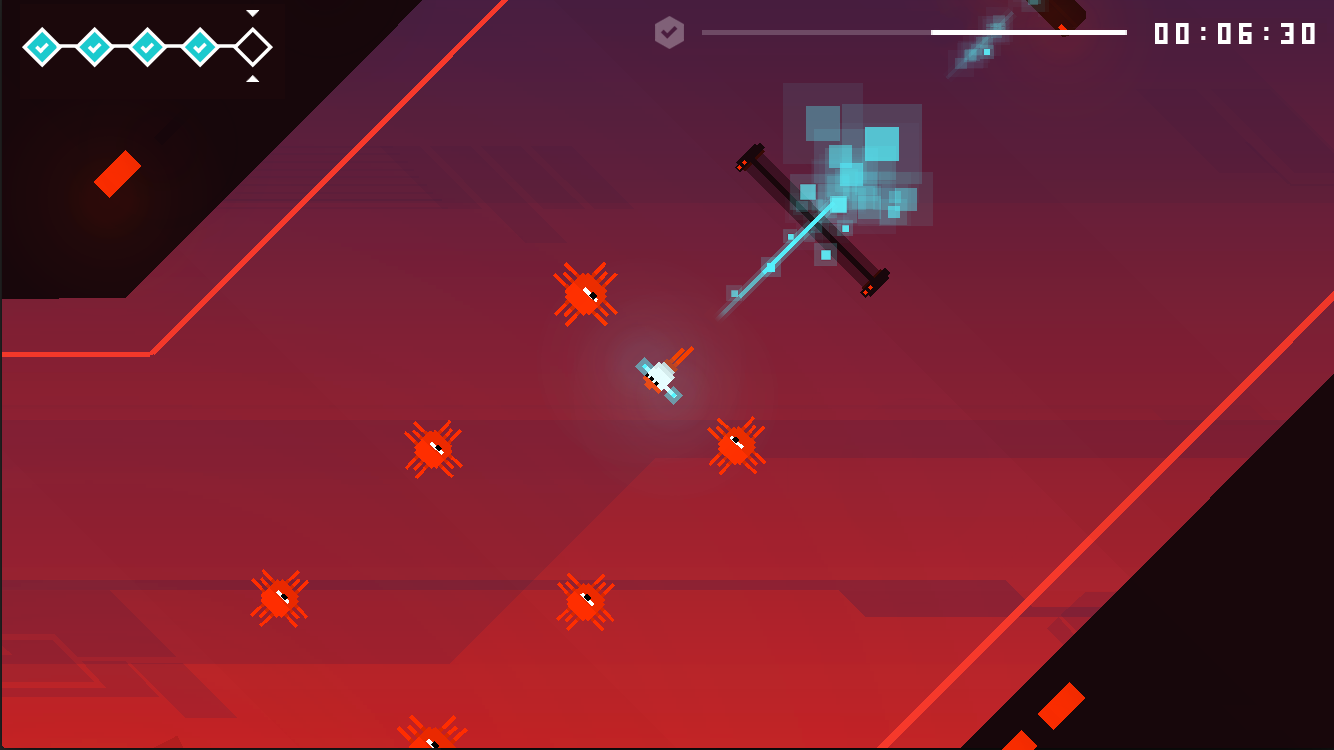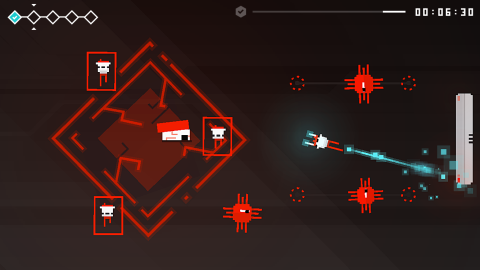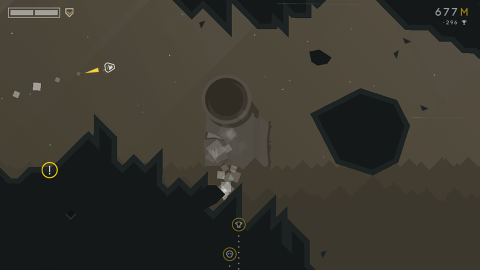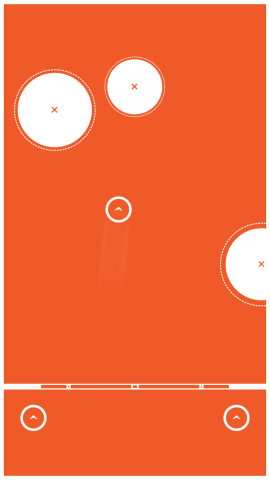Rob Allison, half of Laser Dog, talks about exciting gameplay, developing for iOS, and how insanely tough games are ideally suited to mobile
It’s rare when a developer doesn’t put a foot wrong, but Laser Dog — Rob Allison and Simon Renshaw — based in Leeds, UK is so far three-for-three on iOS. Debut PUK pared catapult games to the bone, as you lobbed discs at targets, trying to stay ahead of a relentlessly ticking clock. ALONE… had you hurtle through deadly caverns, trying to keep a tiny spaceship from being smashed to smithereens. And HoPiKo tasked you with “saving all of gaming”, by way of leaping about tiny digital worlds filled with hazards.
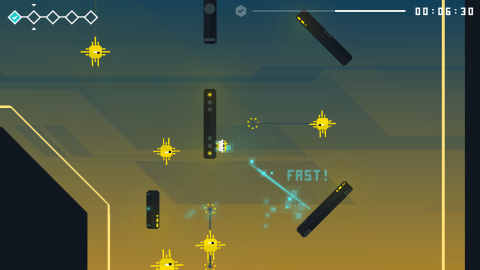
HoPiKo
Although each title feels unique, Laser Dog games have certain commonalities: a minimal visual aesthetic (stemming from the duo’s UI backgrounds and love of the clean and simple); intuitive and straightforward controls; and a level of difficulty that will take your face off, given half a chance. “For us, the most important thing is to make games we enjoy ourselves, and we happen to like really difficult games,” laughs co-founder Rob Allison. “But they do seem ideally suited to mobile, because you can play for a really short time when you’ve a spare moment.”
The need for speed
We proffer it’s also about thrilling the player. Adam Saltsman has said his iOS classic Canabalt is often misunderstood. People complain it’s too simple, but it’s more about firing the player into a tiny breakneck digital roller-coaster. Laser Dog games seem to have a similar approach. Rob broadly agrees, although he notes there is often more underlying complexity in Laser Dog titles — it’s just the player doesn’t have to think about it: “In HoPiKo, for example, your character can only jump — there’s no ‘run’ button and no ‘fire’ button. So we control the speed you experience the game at, which is why platforms explode when you linger — HoPiKo is supposed to be fast!”
HoPiKo is also Rob’s Laser Dog highlight to date. Hailing it as a “massive achievement”, given its scale and scope compared to previous Laser Dog titles, he recalls: “There was a period of about three months, where we were working almost every minute we weren’t sleeping — but we really enjoyed it.” Apple’s ‘Editor’s Choice’ spot was a great reward for such efforts. Surprisingly, though, HoPiKo was initially a very different beast. “We prototype games all the time, using basic shapes, and this tells us if something’s worth pursuing,” he explains. “The initial spark might be something like ‘zero-g platformer’, but the end result can be quite different from what we start with. HoPiKo was initially a really slow game about jumping around the wreckage of a spaceship!”
Core gaming
Although Laser Dog’s horizons have broadened — the company’s games are now all on Android as well as iOS, and HoPiKo will be released on Steam in 2016 — Apple’s mobile hardware is where the story began. Rob says that’s for good reason: “It’s really easy to get a game on to the platform. In fact, the App Store is the reason I learned how to program — it made me feel it was possible to make and sell games.”
However, there are challenges. Making games work on touchscreens is one Rob relishes, because it “forces innovation”, keeping developers away from “trying to emulate hardware controls, which is basically impossible to do really well”. A tougher problem is the iOS gaming market, which is increasingly reliant on freemium payment models. “Many of today’s games seemingly exist purely to extract money from players,” reckons Rob. “While there’s definitely room for freemium games, too many just aren’t fun unless you constantly fork out money or ‘grind’ for hours of boring gameplay.”
Rob notes the App Store’s drift away from a simpler ‘pay once’ business model is unfortunate, and makes the platform “seem less credible for ‘gamer games’”. Unsurprisingly, Laser Dog’s games all have a single price tag and no in-app purchases. Hopefully, that will continue into the future. As for what’s next from the duo, Rob reveals Laser Dog’s working on a sports/arcade title: “We made a prototype some time ago and had loads of fun playing each-other in the two-player mode.” Rob and Simon are now weeks into development, and hoping for a February 2016 release. We ask if there are any further hints about what we might expect. Not skipping a beat, Rob beams: “It’s really fast and difficult — like all of our games!”
Laser focus
Rob Allison on why you should download Laser Dog’s games:
PUK ($1.99/£1.49)
“It’s a minimal, score based, desert-island game which gets better as your skill improves.”
ALONE… ($1.99/£1.49)
“It’s the fastest game you can play while waiting for the bus!”
HoPiKo ($3.99/£2.99)
“It’s like a full console game squeezed into a mobile device.”
